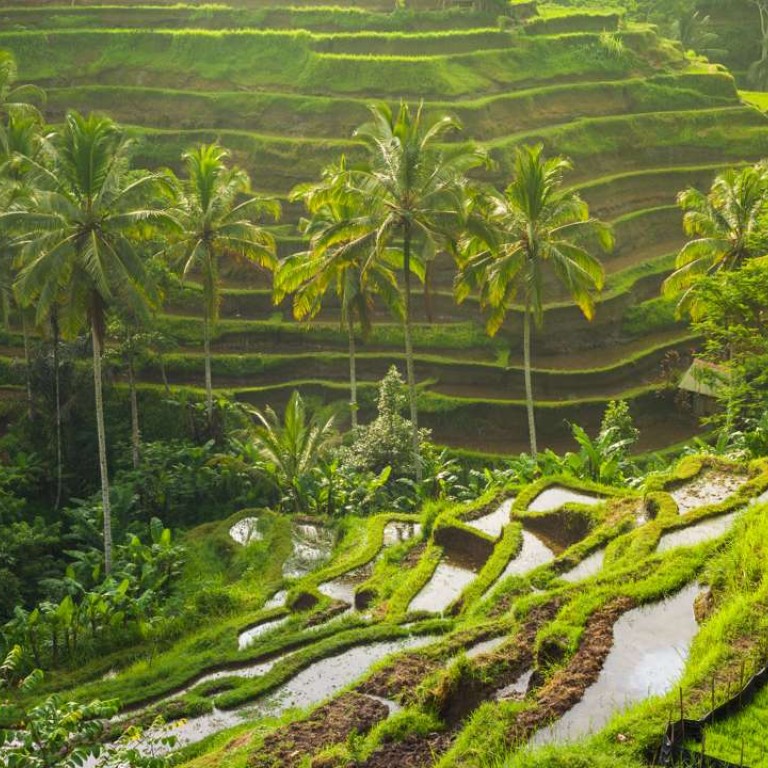
The good, bad and ugly sides to Bali
While ‘paradise’ is an apt term for much of the Indonesian island, both Mother Nature and mankind can make other parts of it hell on earth
THE GOOD
Google the words “Bali” and “paradise” and you’ll be confronted with almost two million hits. Cliché-loving copywriters have a lot to answer for but, as anyone who has visited knows, the Island of the Gods really is a slice of Hindu heaven. Earlier this year, TripAdvisor reviewers rated it their favourite island in Asia; quite an achievement considering the competition.
Bali is as relaxing or as hectic as you make it. Hire a car or motorbike and explore the patchwork of paddy fields that surround Ubud, the island’s cultural heartland and culinary capital. Take in a temple ceremony – there are 10,000 shrines to choose from – or head to the coast, where there are more than enough bleached blond bays and serene stretches of black volcanic sand to go around.

If you’re feeling less energetic, shop for arts and crafts or pick up literary tips at the Ubud Writers & Readers Festival. Organised tours inspired by the novel and 2010 film Eat, Pray, Love whisk fans around locations where Liz (Julia Roberts) searched for balance but ended up being swept off her feet. Self-improvement seekers sign up for Indonesian lessons or join a traditional dance and gamelan music workshop. There are surf schools ready to help you “hang ten” at legendary Kuta beach – but don’t forget to offer your services at one of the early morning clean-ups organised by the surfing community. At the end of a busy day, Balinese sunsets are best enjoyed with sand between toes and a cocktail in hand at a tropical beach bar.
Tourism continues to recover after the bombings of 2002 and 2005. More than four million foreigners did their bit to boost the local economy in 2015 – a far cry from the interwar years, when the luxurious Bali Hotel first opened its doors. In 1930, only about 100 travellers visited the island, arriving at the former colonial capital, Singaraja, by ship. At least they didn’t have to worry about flights being cancelled.

THE BAD
Indonesia’s picturesque volcanoes aren’t always well-behaved. Eruptions last year resulted in ash clouds that spewed skywards for almost a week and led to flights from Bali’s Denpasar Airport being rescheduled. A similar scenario in September caused further travel chaos.
Negotiating the island’s traffic-choked roads is not for the faint-hearted. Last year, there were more than 500 fatalities, many of them tourists riding motorbikes without helmets. A combination of inexperience and alcohol means a disproportionate number of victims are young foreigners.
Bali’s infrastructure is at breaking point. Literally. Last month, a suspension bridge connecting two offshore islands collapsed, killing at least eight people attending a religious ceremony. Waste management is also in crisis. Not so long ago, the only “rubbish” was banana leaves used as plates - today the island is overwhelmed by the garbage, little of which is recycled. Roadside air is filled with the stench of burning plastic as people incinerate their household refuse while illegally dumped waste leaks into waterways and floats down to the coast. In the rainy season, surfers find themselves paddling amid floating debris, which explains why there are so many surfer-coordinated beach clean-ups.

Bag snatching, mobile-phone theft and pickpocketing are rife and there are plenty of dealers selling drugs to hapless holidaymakers, some of whom are caught in possession moments later by police conducting ‘random’ searches
A rethink of Bali’s haphazard and often unenlightened approach to development is long overdue. Land continues to be eaten up for yet more hotels and deluxe holiday homes. Well-ventilated traditional buildings that take advantage of breezes are disappearing in favour of concrete constructions with air conditioning rather than fans. Meanwhile, poor-quality groundwater is the result of ever-increasing demand (about 60 per cent of Bali’s water is consumed by the tourism industry) and the failure of catchment systems. The answer is to drill deeper wells but as Bali’s water table drops, so do rice yields.
Locals and long-term expats complain of increasing levels of crime. Bag snatching, mobile-phone theft and pickpocketing are rife and there are plenty of dealers selling drugs to hapless holidaymakers, some of whom are caught in possession moments later by police conducting “random” searches. Impoverished migrant workers from neighbouring islands are often blamed for the crime wave.
Tourism has done much to lift the Balinese out of poverty but at what social cost? While no one can be blamed for wanting to escape a life of back-breaking toil in the paddy fields, it’s depressing to watch souvenir sellers, who once worked together harvesting the village rice crop, competing aggressively to sell trinkets to tourists for a few rupiah. Furthermore, craftsmen are retiring without passing their skills on to a younger generation who long ago realised they can make more money in a day selling batiks, copy watches or drugs than they could in a month as a skilled wood carver.

THE UGLY
Indonesia is considering implementing a law banning the production, distribution and consumption of alcohol. The legislation would make the roads safer but enjoying a magical Balinese sunset while slurping a banana milkshake seems wrong somehow.

